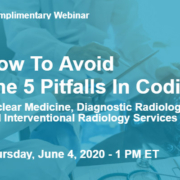In the CMS-5531-IFC dated April 30, 2020, CMS has stated COVID-19 serology antibody testing will be coverable by the Medicare program because they fall under at least one Medicare benefit category. The serology test that detects antibodies to SARS-CoV-2, the virus that causes COVD-19, may potentially aid in identifying patients who have had an immune response to the current (or prior) infection. To qualify for coverage the serology test will need to be authorized by the Food and Drug Administration (FDA) under the CLIA policy to perform high-complexity testing. FDA authorization does not include those tests permitted under the Emergency Use Authorization (EUA) process as these tests have not been reviewed and approved by the FDA. The COVID testing performed has to be reasonable and necessary for beneficiaries with known (or prior) infection or suspected current (or past) infection to be considered for coverage. This means the provider will need to include on the claim applicable diagnosis code(s) to ensure the test will be paid. CMS is expecting to be billed only once per sample for the antibody test as repeat tests will not be considered medically necessary.
Currently, CMS has not yet posted Clinical Laboratory Fee Schedule (CLFS) amounts for new CPT codes 86328 and 86769, which were created and released by the American Medical Association (AMA) on April 10, 2020. There are approximately 12 laboratories that have received FDA approval (authorization) for the antibody testing so we would expect to see something soon published by CMS regarding expected payment. The following codes are specific to antibody testing:
| CPT Code |
Long Description |
| 86328 |
Immunoassay for infectious agent antibody(ies), qualitative or semiquantitative, single step method (eg, reagent strip); severe acute respiratory syndrome coronavirus 2 (SARS-CoV-2) (Coronavirus disease [COVID-19]) |
| 86769 |
Antibody; severe acute respiratory syndrome coronavirus 2 (SARS-CoV-2) (Coronavirus disease [COVID-19]) |
Code 86328 is an infectious agent antibody qualitative or semiquantitative immunoassay by single-step method. Only one unit may be reported regardless of the number of antibody classes tested with one reagent strip. If two distinct reagent strip assays (two antibodies) are ordered and performed, then this may be reported as 86328 x1 and 8632859 x1.
Code 86769 is an antibody qualitative or semiquantitative immunoassay by multi-step method. If multiple assays are ordered and performed for antibodies (different immunoglobulin classes) via two distinct multi-step analyses, then report code 86769 x1 and 8676959 x1.
Remember that code 86735 was created specific to detection of SARS-CoV-2 / COVID-19 antigen via respiratory specimens. If a physician orders collection of a nasopharyngeal or oropharyngeal specimen and blood a specimen and both tests performed, then CPT codes may be reported for each distinct test. Report code 86328 (reagent single-step method) or 86769 (multi-step method) with code 86735 when this scenario occurs.
A specimen collection (venipuncture) charge (CPT code 36415) would be appropriate with the new serologic test codes. Remember regardless of the number of blood specimens collected only one unit may be reported.
Finally, in the CMS-5531-IFC, is relaxing requirements for ordering COVID-19 diagnostic laboratory antigen and antibody testing. CMS is allowing two additional changes to be made only during this Public Health Emergency (PHE):
- COVID-19 test may be covered when ordered by any healthcare professional authorized to do so under state law, and
- Removing ordering requirements for certain influenza virus and respiratory syncytial virus (common respiratory virus) when furnished in conjunction with a COVID-19 diagnostic test in the course of establishing or ruling out a COVID diagnosis or identifying patients with an adaptive immune response to SARS-CoV-2 (see below link to posted list of laboratory codes allowed)
Providers are reminded, if a test is performed in the absence of an order, CMS expects the performing laboratory to report the results directly to the patient (and treating physician where applicable) as well as continue timely reporting of all test results to local and/or state officials as required. CMS reminds the billing laboratory to continue reporting on claims ordering/referring provider information when an order is present.
We urge providers of service to review CMS and AMA requirements to ensure understanding of the requirements addressed in this update.
Sources:
CMS-5531-IFC https://www.cms.gov/files/document/covid-medicare-and-medicaid-ifc2.pdf
CMS List of lab test codes for COVID-19, Influenza, RSV https://www.cms.gov/files/document/covid-ifc-2-flu-rsv-codes.pdf
AMA has released a special edition CPT Assistant that can be viewed at https://www.ama-assn.org/system/files/2020-04/cpt-assistant-guide-coronavirus-april-2020.pdf
FDA: Laboratories and Manufacturers COVID-19 Tests https://www.fda.gov/medical-devices/emergency-situations-medical-devices/faqs-diagnostic-testing-sars-cov-2#offeringtests




